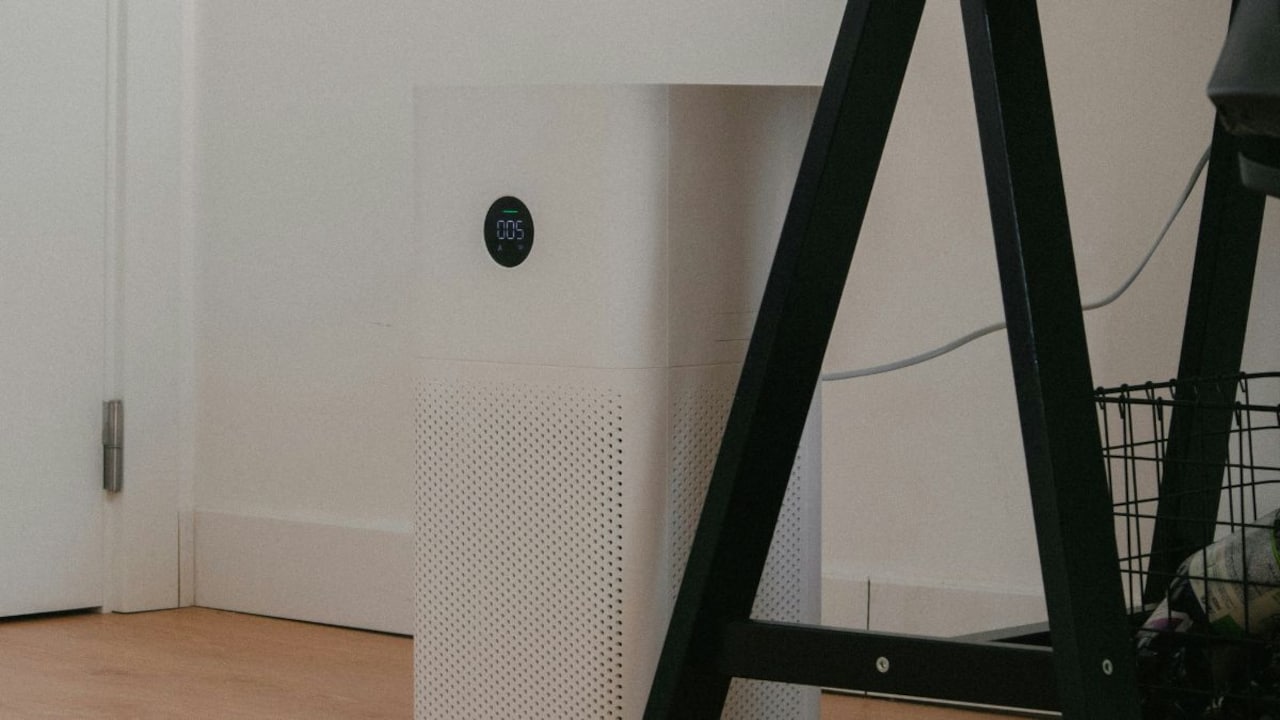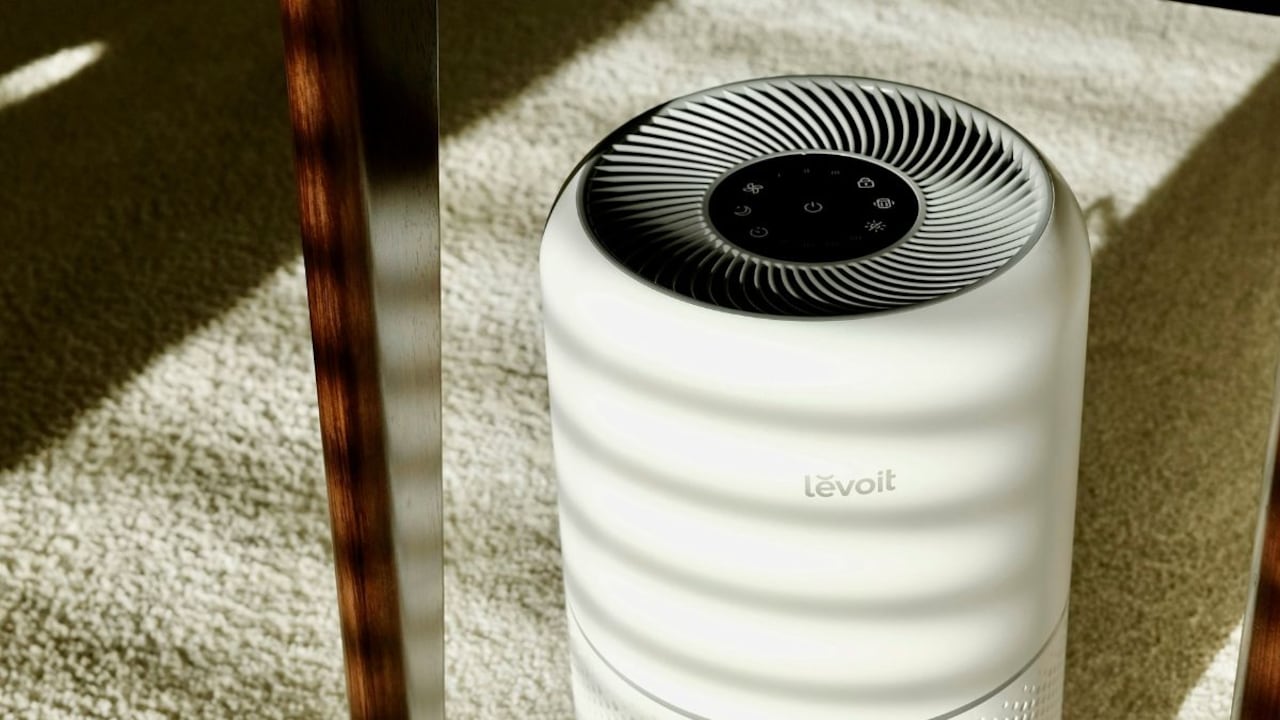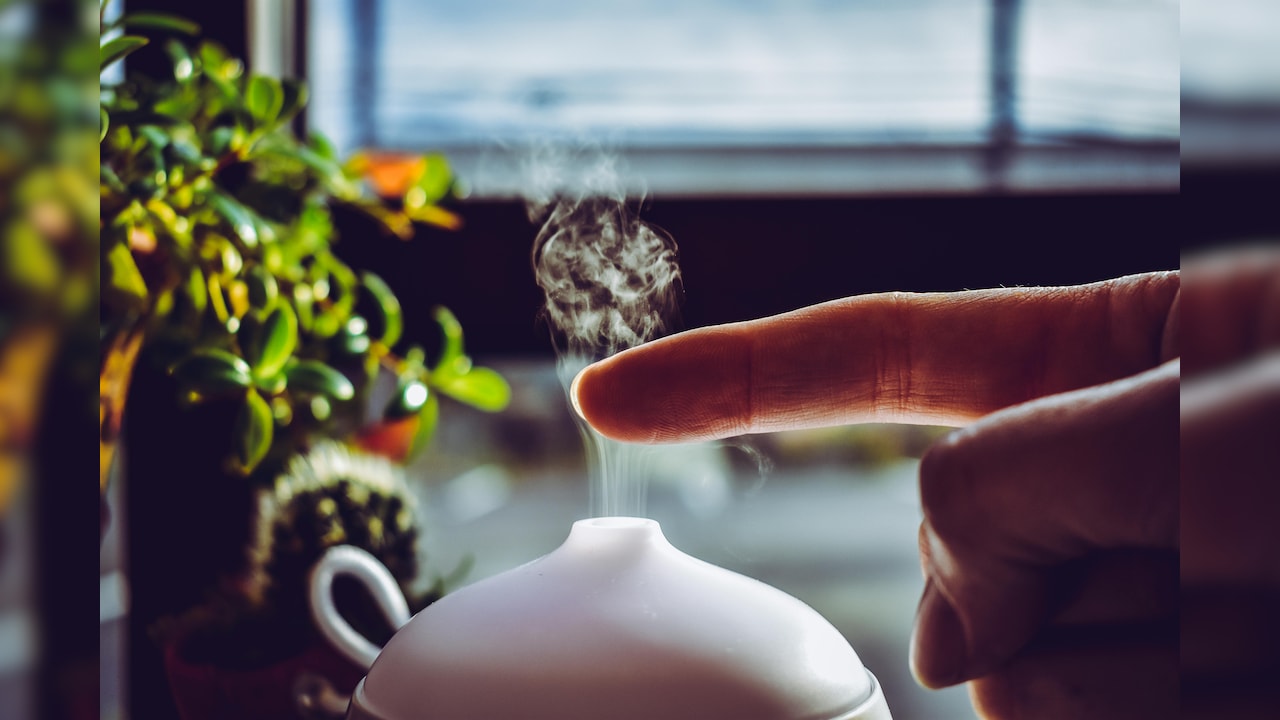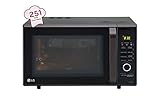Allergy Season Meets Smog: Should You Choose A Humidifier Or An Air Purifier To Combat The Symptoms?
With pollution and seasonal allergies surging in Delhi NCR, many are turning to humidifiers and air purifiers for relief. Discover which device is more effective for throat irritation, congestion, and allergy prevention.

Air purifiers remove allergens; humidifiers relieve dryness
Lately, Delhi NCR has been cloaked in a haze of air pollution and the onset of winter chill. Everyday, residents are waking up to more than just smoggy skies and dusty winds, they are battling a wave of seasonal allergies. From persistent throat irritation to nasal congestion, almost everyone around us is reporting flu-like symptoms that blur the lines between flu and pollution-triggered discomfort. As air quality plummets and AQI charts turn crimson, the search for indoor relief has intensified.

Delhi's pollution makes indoor air solutions essential.
Photo Credit: Unsplash
The Pollution Crisis: A Breeding Ground For Allergies
Post-diwali, Delhi NCR has witnessed a dramatic spike in pollution levels, with the Air Quality Index (AQI) crossing 400 in several areas, a level categorised as ‘hazardous' by the Central Pollution Control Board. Hospitals across the region are reporting a surge in patients complaining of persistent coughs, wheezing, nasal congestion, and throat irritation. According to a LocalCircles survey, nearly three out of four households in the region now have someone suffering from flu-like symptoms or respiratory discomfort.
Also Read: How Many Air Purifiers Do You Need In A Home? A Practical Guide For Delhi-NCR Residents
Doctors warn that the toxic mix of PM2.5 particles, volatile organic compounds, and seasonal weather changes is exacerbating allergic reactions, especially among children, the elderly, and those with pre-existing conditions. In this context, the debate between humidifiers and air purifiers is more than academic, it's a matter of public health.
Understanding The Devices: What They Do
Air Purifiers are designed to remove airborne pollutants such as dust, pollen, pet dander, mould spores, and smoke. Most modern purifiers use HEPA filters, which can trap particles as small as 0.3 microns with up to 99.97% efficiency. Some advanced models also include activated carbon filters to neutralise odours and volatile organic compounds, and UV sterilisation to kill bacteria and viruses.
Humidifiers, on the other hand, add moisture to the air. This can be particularly helpful in dry environments or during winter months when indoor heating systems reduce humidity levels. By increasing moisture, humidifiers can soothe dry nasal passages, reduce throat irritation, and ease congestion.

HEPA filters trap 99.97% of airborne particles.
Photo Credit: Unsplash
Which Is Better For Allergies?
Air Purifiers
Many specialists widely agree that air purifiers are more effective for allergy prevention. A reddit sub-group titled allergies, notes that purifiers actively remove allergens from the air, thereby reducing exposure and preventing symptoms from developing in the first place. Whereas for some particular allergies like dustmites, a humidifier could actually make things worse.
In Delhi NCR, where PM2.5 levels routinely exceed safe limits, air purifiers can play a crucial role in reducing indoor exposure. Devices equipped with HEPA-13 filters are particularly recommended for homes with children, elderly residents, or individuals with asthma.
Moreover, air purifiers do not alter humidity levels, making them safer for long-term use. Unlike humidifiers, they do not carry the risk of promoting mould or dust mite growth, both of which are common allergens.
Humidifiers

Humidity above 50% may worsen allergy symptoms.
Photo Credit: Pexels
While humidifiers do not remove allergens, they can alleviate symptoms caused by dry air. For instance, during winter months, when humidity drops and heaters are in use, the air becomes dry and harsh. This dryness can irritate the throat and nasal passages, making allergy symptoms worse.
Humidifiers help by keeping mucous membranes moist, which can reduce inflammation and make breathing more comfortable. They are especially useful for those suffering from throat irritation, dry cough, or sinus congestion.
However, many caution against overuse. A comment in the reddit thread noted that excessive humidity (above 50%) can encourage the growth of mould and dust mites, potentially worsening allergy symptoms. Regular cleaning and monitoring of humidity levels using a hygrometer are essential.
Can You Use Both?
In many cases, the best approach may be to use both devices in tandem. Air purifiers can remove allergens, while humidifiers can ease the discomfort caused by dry air. This combination is particularly effective in urban environments like Delhi, where pollution and low humidity often go hand-in-hand.
For instance, using a HEPA air purifier in the bedroom can ensure clean air during sleep, while a cool mist humidifier can prevent dryness and soothe irritated airways. However, it's important to maintain both devices properly to avoid unintended consequences.
Practical Tips For Delhi NCR Residents
Given the current pollution crisis, here are some expert-backed recommendations:
- Invest in a HEPA-13 air purifier for your main living and sleeping areas.
- Use a humidifier only if the indoor air feels dry; try to maintain the humidity between 30–50%.
- Avoid outdoor activities during peak pollution hours, especially early mornings and late evenings.
- Stay hydrated and drink warm fluids like turmeric milk, ginger tea, and honey-lemon water to soothe the throat.
- Use saltwater gargles and steam inhalation to relieve congestion and irritation.
- Wear N95 masks when stepping outdoors and keep windows closed during high AQI days.
If you're choosing between a humidifier and an air purifier to combat allergies in Delhi NCR, go with the air purifier. It offers preventive protection by removing allergens from the air, a crucial advantage in a region where pollution is a daily reality. Humidifiers, while helpful for symptom relief, should be used cautiously and only when dryness is a contributing factor.
Ultimately, improving indoor air quality is not just about comfort, it's about safeguarding your health in an increasingly toxic environment.
Frequently Asked Questions (FAQs)
1. Can a humidifier help with pollution-related allergies?
A humidifier can ease symptoms like dry throat and nasal congestion caused by dry air, but it does not remove pollutants or allergens from the air.
2. Are air purifiers effective against Delhi's pollution?
Yes, air purifiers with HEPA filters can significantly reduce indoor exposure to PM2.5, pollen, and other airborne allergens, making them ideal for allergy prevention.
3. Is it safe to use a humidifier daily in winter?
It can be safe if humidity levels are monitored and kept between 30–50%. Excess moisture can promote mould and dust mites, which may worsen allergies.
4. Should I use both a humidifier and an air purifier together?
Yes, using both can be beneficial. Air purifiers clean the air, while humidifiers add moisture to ease irritation. Just ensure proper maintenance of both devices.
5. What symptoms indicate I need an air purifier?
Persistent sneezing, coughing, itchy eyes, and congestion, especially indoors, may suggest exposure to allergens or pollutants that an air purifier can help reduce.
























